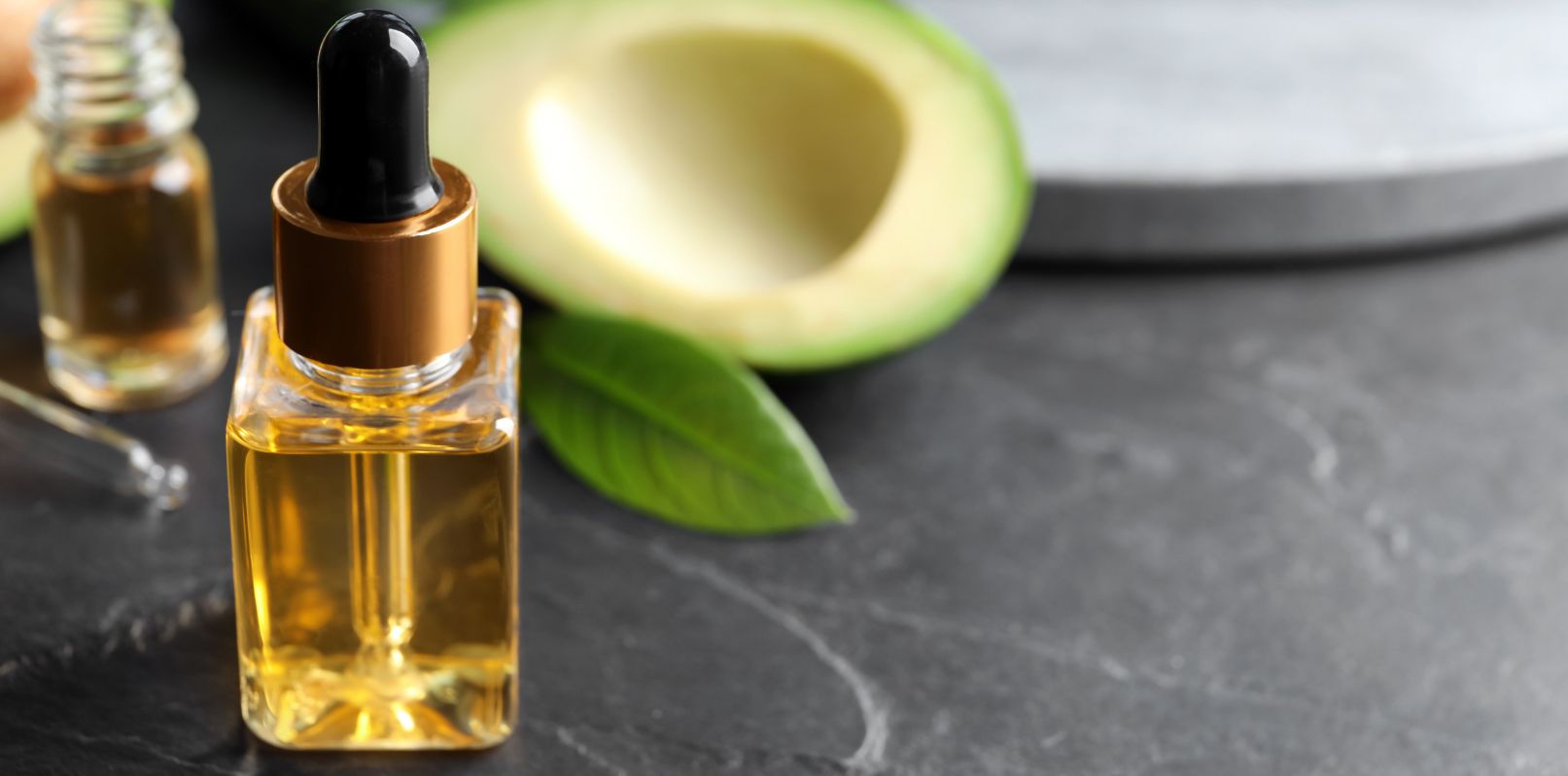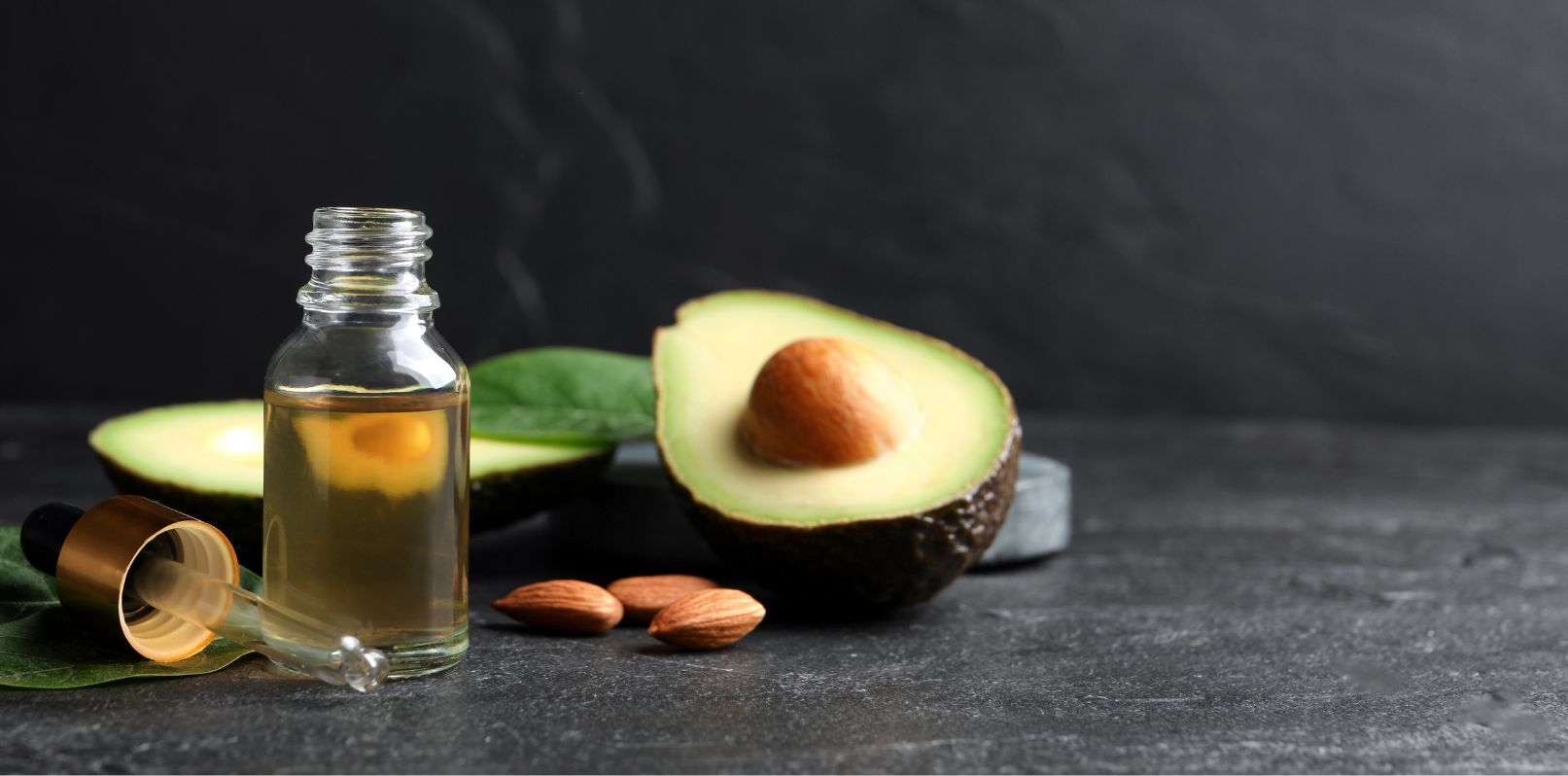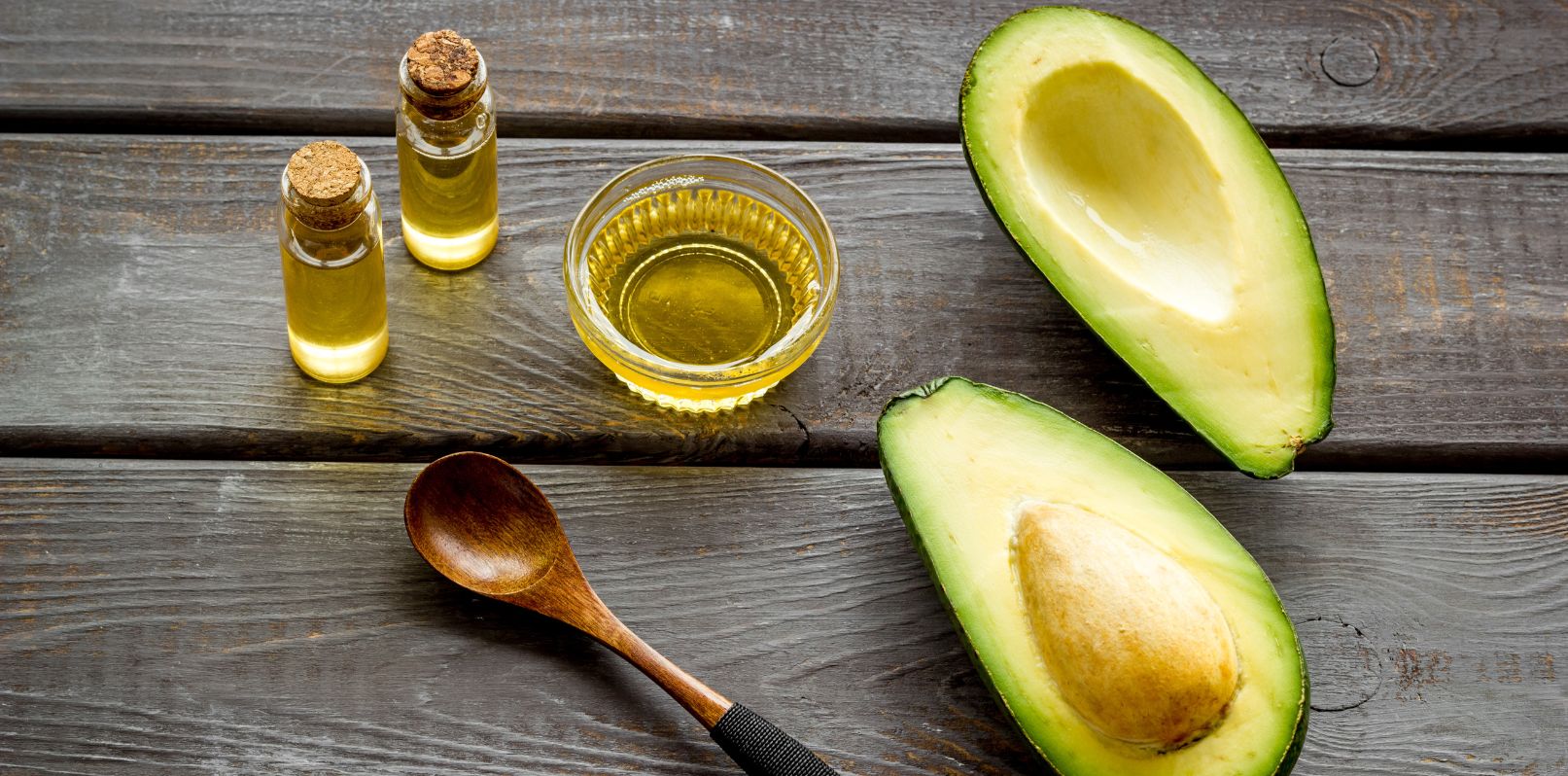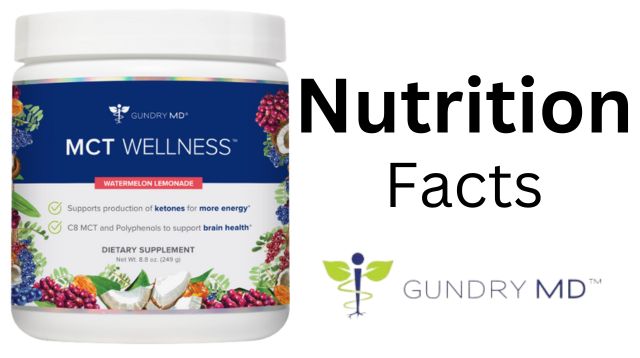MCT Oil vs. Avocado Oil: Which One is Healthier for You?

What Is MCT Oil?

MCT oil is derived primarily from coconut oil and contains medium-chain triglycerides (MCTs), a type of fat. MCTs have smaller molecules and are easier to metabolize compared to long-chain triglycerides (LCTs) found in other oils. This means they can potentially provide a much quicker source of energy.1
MCT oil is a concentrated source of medium-chain triglycerides. While coconut oil has an MCT content of about 54%, MCT oil has an MCT content of 100%.
MCT oil is most commonly used as a supplement for the reasons we shall explore below.
Potential Health Benefits Of MCT Oil
1. MCTs may help support healthy brain function.
MCT oil may stimulate the production of ketones, a highly efficient energy source for the brain. These ketones have shown promise in supporting healthy brain function.2-4
2. MCTs may help support focus.
In addition to helping to support brain health, MCT oil may also be beneficial as a fast source of brain “energy” because it’s so quickly absorbed into the bloodstream. This may help to promote focus and concentration.5,6
3. MCTs may help with weight management.
MCT oil is a supplement known for potential health perks in the weight management arena. Research suggests that MCT oil may lead to greater energy expenditure and the ability to boost the number of calories burned after meals. Plus, that increased ketone production may also make some people feel less hungry.7-9
4. MCTs may help support healthy blood glucose levels already within a normal range.
MCTs, or medium-chain triglycerides, are quickly absorbed fats, and some research suggests they may aid in supporting healthy blood glucose levels. With further studies, this could have a big impact on how people keep their healthy blood sugar levels in check.10
What Is Avocado Oil?

Avocado oil is a versatile, edible vegetable oil extracted from the meat of avocados. With its smooth, nutty flavor, it serves as a great substitute for butter or other plant-based oils in various dishes.
Avocado oil is rich in oleic acid, similar to olive oil, and it contains beneficial vitamins and minerals, such as vitamin E and potassium. It’s composed mostly of heart-healthy monounsaturated fats (MUFAs). In fact, the Haas variety of avocado can contain up to 71% of monounsaturated fatty acids.11
Potential Health Benefits Of Avocado Oil
Avocado oil is beloved by many people but it’s definitely not the same powerhouse as the avocado itself.
For one, the avocado fruit is packed with healthy fiber that your “gut bugs” love and need to thrive. Secondly, a number of studies on commercial avocado oil in the US have shown that much of it has been adulterated with other oils to help keep the price down. And thirdly, avocado oil is not nearly as rich in polyphenols as extra virgin olive oil.
Though oleic acid and monounsaturated fats are great, they have nothing on the health benefits of polyphenols. Which is why olive oil is always the preferred choice.
However, studies on pure avocado oil have shown that:
1. It may be rich in brain-boosting oleic acid.
Almost 70% of avocado oil consists of heart-healthy oleic acid, a monounsaturated omega-9 fatty acid. Oleic acid may help to support healthy brain function.12
2. It may help support healthy cholesterol levels.
Avocado oil has been shown to be potentially beneficial in supporting healthy cholesterol levels. Studies have shown that people who consumed avocado oil registered lower levels of triglycerides and LDL (bad) cholesterol compared to those who ate butter.13
3. It’s high in lutein, a powerful antioxidant.
Avocado oil is a good source of lutein. Lutein is a very potent natural antioxidant. It’s found in high concentrations in the macula of the human retina, so it’s essential for eye health. Lutein is found in the eyes, but the body can’t actually make more of it. So, it must be obtained from one’s diet.14-17
4. It may help promote healthy skin.
Avocado oil, rich in fatty acids and vitamins A and E, may help to support the skin. For one, studies have shown that the topical application of avocado oil may help to soothe dry skin conditions.18
MCT Oil vs. Avocado Oil: The Ultimate Comparison
1. MCT Oil vs. Avocado Oil: Basic Nutritional Info
Let’s start by taking a look at the basic nutritional properties of MCT Oil in comparison to avocado oil.
MCT Oil:
- MCT oil contains fast-acting MCTs, typically a blend of caprylic acid (C8) and capric acid (C10), or just C8.20
- MCTs are classified as saturated fat but don’t act like traditional “unhealthy” saturated fat because they’re more rapidly metabolized.21
Avocado Oil:
- Avocado oil contains omega-3 fatty acids, vitamin E, and antioxidants, as well as those eye-healthy carotenoids, like lutein.22
2. MCT Oil vs. Avocado Oil: Calorie Content
When looking at the calorie and fat content of both MCT and avocado oil, you’ll see that they’re almost identical.
MCT Oil:
- Calories: One tablespoon of MCT oil contains approximately 120 calories.
- Fat: MCT oil has around 14 grams of fat per tablespoon.23
Avocado Oil:
- Calories: The average tablespoon of avocado oil offers around 124 calories.
- Fat: Avocado oil has around 14 grams of fat per tablespoon.24
3. MCT Oil vs. Avocado Oil: Medium-chain triglycerides vs. long-chain Triglycerides
Medium-chain triglycerides (MCTs) are fats with a chain length of 6-12 carbon atoms. They're utilized quite differently by the body when compared to long-chain triglycerides (LCTs), such as those found in avocado oil (which contain 13-21 carbon atoms).25
MCTs are more quickly absorbed and converted into potential energy – making MCT oil popular for those who seek that potential of fast-acting results.26
Although the LCTs in avocado oil are processed a little more slowly, they may have their own potential health properties, as seen above.
MCT Oil vs. Avocado Oil: Which Is Healthier For You?

In this case – MCT oil
And you can replace your (potentially adulterated) avocado oil with olive oil - the polyphenol powerhouse and reigning King of the Mediterranean diet!
Pop MCT oil or MCT powder in your morning coffee, smoothie, or protein shake.
While Olive oil can be used for cooking, salad dressings, marinades, or simply drizzled across your meal.
However – fun fact: a teaspoon or two of olive oil can also be added to your coffee or smoothie alongside MCT oil. In a blind taste test, you wouldn’t even notice! Except for that silkier texture.
Sources- https://www.health.harvard.edu/blog/is-there-a-place-for-coconut-oil-in-a-healthy-diet-2019011415764
- https://alz-journals.onlinelibrary.wiley.com/doi/abs/10.1002/alz.055702
- https://pubmed.ncbi.nlm.nih.gov/33220329/
- https://www.frontiersin.org/articles/10.3389/fneur.2023.1123290/full
- https://www.sciencedirect.com/science/article/abs/pii/S0031938420305667
- https://www.ncbi.nlm.nih.gov/pmc/articles/PMC4669977/
- https://pubmed.ncbi.nlm.nih.gov/2021124/
- https://www.ncbi.nlm.nih.gov/pmc/articles/PMC5813183/#:~:text=Conclusions,hunger%2C%20and%20desire%20to%20eat
- https://www.ncbi.nlm.nih.gov/pmc/articles/PMC7175812/
- https://pubmed.ncbi.nlm.nih.gov/1568535/
- https://www.ncbi.nlm.nih.gov/pmc/articles/PMC6600360/
- https://www.ncbi.nlm.nih.gov/pmc/articles/PMC7909548/
- https://www.sciencedirect.com/science/article/abs/pii/S1756464617305315?via%3Dihub
- https://pubmed.ncbi.nlm.nih.gov/23571649/
- https://www.ncbi.nlm.nih.gov/pmc/articles/PMC6164534/#:~:text=Lutein%20has%20been%20demonstrated%20to,potent%20than%20Z%20%5B9%5D.
- https://www.ncbi.nlm.nih.gov/pmc/articles/PMC5622679/
- https://www.ncbi.nlm.nih.gov/pmc/articles/PMC7352796/#:~:text=Lutein%20is%20one%20of%20the,and%20dark%20green%20leafy%20vegetables
- https://pubmed.ncbi.nlm.nih.gov/11586013/
- https://www.ncbi.nlm.nih.gov/pmc/articles/PMC3263051/
- https://www.ncbi.nlm.nih.gov/pmc/articles/PMC4882694/
- https://www.healthline.com/nutrition/saturated-fat-types#TOC_TITLE_HDR_8
- https://www.ncbi.nlm.nih.gov/pmc/articles/PMC6600360/
- https://www.nestlehealthscience.ca/en/brands/mct-oil/mct-oil
- https://fdc.nal.usda.gov/fdc-app.html#/food-details/173573/nutrients
- https://med.virginia.edu/ginutrition%20/wp-content/uploads/sites/199/2014/06/Parrish-February-17.pdf
- https://med.virginia.edu/ginutrition%20/wp-content/uploads/sites/199/2014/06/Parrish-February-17.pdf
Related posts


